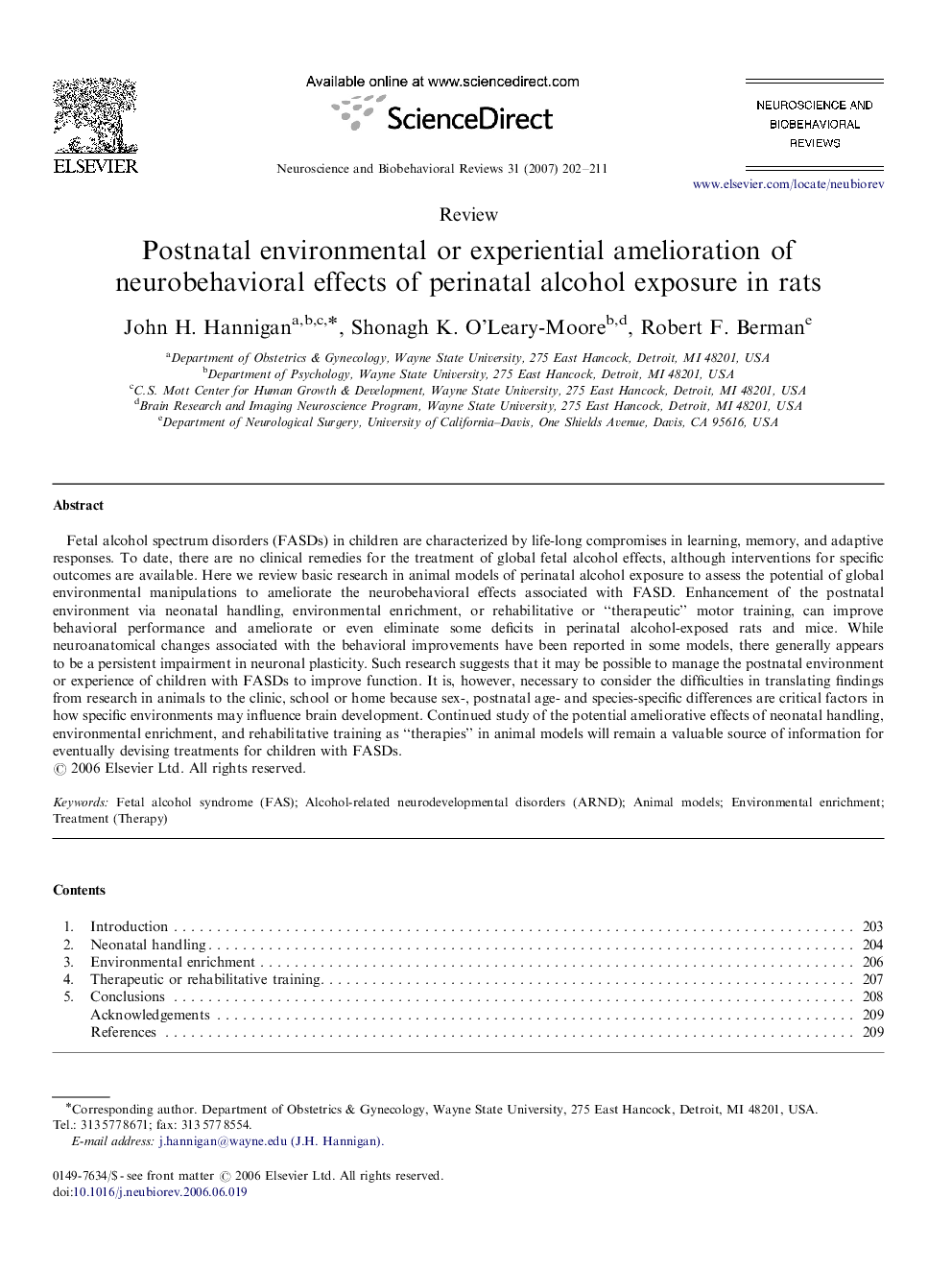| Article ID | Journal | Published Year | Pages | File Type |
|---|---|---|---|---|
| 938274 | Neuroscience & Biobehavioral Reviews | 2007 | 10 Pages |
Fetal alcohol spectrum disorders (FASDs) in children are characterized by life-long compromises in learning, memory, and adaptive responses. To date, there are no clinical remedies for the treatment of global fetal alcohol effects, although interventions for specific outcomes are available. Here we review basic research in animal models of perinatal alcohol exposure to assess the potential of global environmental manipulations to ameliorate the neurobehavioral effects associated with FASD. Enhancement of the postnatal environment via neonatal handling, environmental enrichment, or rehabilitative or “therapeutic” motor training, can improve behavioral performance and ameliorate or even eliminate some deficits in perinatal alcohol-exposed rats and mice. While neuroanatomical changes associated with the behavioral improvements have been reported in some models, there generally appears to be a persistent impairment in neuronal plasticity. Such research suggests that it may be possible to manage the postnatal environment or experience of children with FASDs to improve function. It is, however, necessary to consider the difficulties in translating findings from research in animals to the clinic, school or home because sex-, postnatal age- and species-specific differences are critical factors in how specific environments may influence brain development. Continued study of the potential ameliorative effects of neonatal handling, environmental enrichment, and rehabilitative training as “therapies” in animal models will remain a valuable source of information for eventually devising treatments for children with FASDs.
